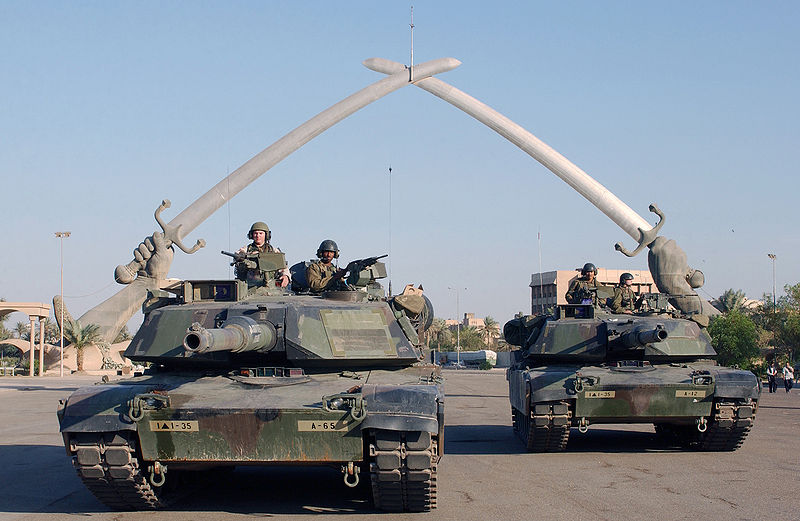You can feel deep sympathy for the parents, wife and children of the late Atlantic journalist Michael Kelly, who was the first member of the press to be killed covering the Iraq war, and still be critical of the wrongheadedness he displayed which led not only to his demise but also contributed to the death of tens of thousands of other human beings. Like many pundits and politicians, Kelly, in the wake of 9/11, developed a blind spot–a lethal one. Unless we figure out why that happened, why so many otherwise smart people became dumb at a really bad moment, it will happen again.
In a provocative Gawker post, “A Stupid Death in a Stupid War,” Tom Scocca examines Kelly’s thought process in the run-up to the invasion, ten years after his death as an embed. An excerpt:
“People who supported the invasion of Iraq and now regret the results tend to say that it was a good idea that was badly planned or poorly managed. Yet there was no idea but the planning and management of it. The decision to invade was not a change of principles, a repudiation of mushy-headed pacifism and appeasement; it was a change of strategy.
Even that gives it too much credit. It was half a change of strategy, really: regime change with nothing to change it to; an invasionary force without a plan for occupation; an open-ended commitment of military personnel by a nation too politically cowardly to draft enough bodies to do the job. Thousands of reservists and National Guard troops found themselves serving multiple tours abroad, trapped in what Kelly had envisioned as ‘total limited war…brutally effective in its killing power while being miserly of American life and property.’
‘You go to war with the army you have, not the army you might want or wish to have at a later time,’ Donald Rumsfeld said, thereby sparing Kelly and Andrew Sullivan and everyone else in the press from the shame of having said the single most fatuous and destructive thing about the invasion of Iraq. It is hard to find a shorter, clearer description of how wars are not won. The United States did not attack Berlin or Tokyo with the army it had in December of 1941. The U.S. Navy did not sail up the Thames in 1812. You fight the battles you can win with the army you have.
That Kelly was brave in going to cover the combat does not change the fact that he chose to be bold with other people’s lives. It was time to do something about Iraq—’to turn, as swimmers into cleanness leaping,’ as Rupert Brooke wrote in 1914, in a sonnet celebrating the chance to go fight the Great War. A year later, Brooke died of an infected mosquito bite on a troop ship, taking his place among the 16 million corpses.
The premise of Kelly’s argument for invasion was that escalating the war, carrying it to Baghdad on the ground, would settle the problems ‘easily and quickly.’ Like his fellow poets, Sullivan and Christopher Hitchens, he presented his romantic vision as clear-eyed advice. Evil must be opposed. Good would triumph. Anyone who disagreed was benighted, mistaken, immoral.”
Tags: Michael Kelly, Tom Scocca

